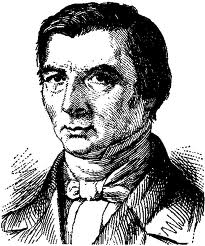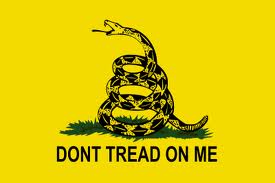
Philosophy In Practice
The United States has often been referred to as an experiment.
I have no fear that the result of our experiment will be that men may be trusted to govern themselves without a master. — Thomas Jefferson
The preservation of the sacred fire of liberty, and the destiny of the republican model of government, are justly considered as deeply, perhaps as finally staked, on the experiment entrusted to the hands of the American people. — George Washington
The American experiment is the most tremendous and far reaching engine of social change which has ever either blessed or cursed mankind. Â — Charles Francis Adams
America is the most grandiose experiment the world has seen, but, I am afraid, it is not going to be a success. ~Sigmund Freud
We can not overestimate the fervent love of liberty, the intelligent courage, and the sum of common sense with which our fathers made the great experiment of self-government. — James A. Garfield
In that land the great experiment was to be made, by civilized man, of the attempt to construct society upon a new basis; and it was there, for the first time, that theories hitherto unknown, or deemed impracticable, were to exhibit a spectacle for which the world had not been prepared by the history of the past. — Alexis de Tocqueville
 Frederic Bastiat explains the nature of the experiment in his essay, The Law1.  His words are profound, and, as a profundity frequently is, simple.  His political philosophy is derived from a basic appreciation about the nature of life.  In providing the groundwork for his magnificent essay, Bastiat’s words exemplify the core tenets of America’s founding.
Frederic Bastiat explains the nature of the experiment in his essay, The Law1.  His words are profound, and, as a profundity frequently is, simple.  His political philosophy is derived from a basic appreciation about the nature of life.  In providing the groundwork for his magnificent essay, Bastiat’s words exemplify the core tenets of America’s founding.
Life is a gift from God, or, as the Founders said, the Creator. Â This simple truth is the justification all the principles upon which the United States was founded. Â Bastiat defines life as having three components – physical, intellectual, and moral.
He goes on to explain that, while life itself is a gift, it is not a gift that comes without responsibilities. Â People have to eat. Â They have to provide for their necessities.
But life cannot maintain itself alone. The Creator of life has entrusted us with the responsibility of preserving, developing, and perfecting it. In order that we may accomplish this, He has provided us with a collection of marvelous faculties. And He has put us in the midst of a variety of natural resources. By the application of our faculties to these natural resources we convert them into products, and use them. This process is necessary in order that life may run its appointed course.
Our intelligence, our physical powers, and our morality are inextricably linked. Â These are tied directly to our talents and the output of those talents applied – production ie property. Because man is s sentient, discrete organism – he is an individual. Â Because man is required to provide for himself to survive – he must be free to do so. Â And the fruits of his efforts and intellect are his property. Â These concepts existed before any law or government.
Life, faculties, production — in other words, individuality, liberty, property — this is man. And in spite of the cunning of artful political leaders, these three gifts from God precede all human legislation, and are superior to it. Life, liberty, and property do not exist because men have made laws. On the contrary, it was the fact that life, liberty, and property existed beforehand that caused men to make laws in the first place.
So, if this is true, then where does government fit in?  The Founders knew the answer to this question. Government is an extension of individual rights and derived from “the consent of the governed.† Bastiat explains something that should be common sense, but is somehow often forgotten.  The right of self-defense is inherent and natural.  Since the three basic components of life are: your person, your freedom, and your property, and without any one of them the others are impossible, you have the right to defend them by force.
Each of us has a natural right — from God — to defend his person, his liberty, and his property. These are the three basic requirements of life, and the preservation of any one of them is completely dependent upon the preservation of the other two. For what are our faculties but the extension of our individuality? And what is property but an extension of our faculties?
Man can live and satisfy his wants only by ceaseless labor; by the ceaseless application of his faculties to natural resources. This process is the origin of property.
 Today, some people balk at the sanctity of property. But the Founders did not, and it wasn’t because they were all rich.  Thousands of Americans of all classes fought in the Revolution at great personal sacrifice to protect their property, freedom, and person.  They understood that man is entitled to enjoy the fruits of his labor and dispose of them how he sees fit.
Today, some people balk at the sanctity of property. But the Founders did not, and it wasn’t because they were all rich.  Thousands of Americans of all classes fought in the Revolution at great personal sacrifice to protect their property, freedom, and person.  They understood that man is entitled to enjoy the fruits of his labor and dispose of them how he sees fit.
If government is an extension of individual rights and the basic right of an individual is to protect his life, liberty and property, then government is merely an organization of individuals in support of a common effort to provide such protection.  If this purpose is derived from the individual, then the powers of government cannot logically be in opposition to the rights of the individual.  The Founders’ concept of government was very limited in scope for this reason.
If every person has the right to defend even by force — his person, his liberty, and his property, then it follows that a group of men have the right to organize and support a common force to protect these rights constantly. Thus the principle of collective right — its reason for existing, its lawfulness — is based on individual right. And the common force that protects this collective right cannot logically have any other purpose or any other mission than that for which it acts as a substitute. Thus, since an individual cannot lawfully use force against the person, liberty, or property of another individual, then the common force — for the same reason — cannot lawfully be used to destroy the person, liberty, or property of individuals or groups.
If this is true, then government should only be able to do collectively what individuals have a natural and lawful right to do.
The law is the organization of the natural right of lawful defense. It is the substitution of a common force for individual forces. And this common force is to do only what the individual forces have a natural and lawful right to do: to protect persons, liberties, and properties; to maintain the right of each, and to cause justice to reign over us all.
Here Bastiat posits that a nation founded on this principle would be just and enduring.
If a nation were founded on this basis, it seems to me that order would prevail among the people, in thought as well as in deed. It seems to me that such a nation would have the most simple, easy to accept, economical, limited, nonoppressive, just, and enduring government imaginable — whatever its political form might be.
Well, The United States was founded on this basis. How long it will endure depends on how well we adhere to the founding principles. In explaining what a just polity looks like, Bastiat accurately portrays what happens when government goes outside the bounds of its purview.
Under such an administration, everyone would understand that he possessed all the privileges as well as all the responsibilities of his existence. No one would have any argument with government, provided that his person was respected, his labor was free, and the fruits of his labor were protected against all unjust attack. When successful, we would not have to thank the state for our success. And, conversely, when unsuccessful, we would no more think of blaming the state for our misfortune than would the farmers blame the state because of hail or frost. The state would be felt only by the invaluable blessings of safety provided by this concept of government.
It can be further stated that, thanks to the non-intervention of the state in private affairs, our wants and their satisfactions would develop themselves in a logical manner. We would not see poor families seeking literary instruction before they have bread.2 We would not see cities populated at the expense of rural districts, nor rural districts at the expense of cities. We would not see the great displacements of capital, labor, and population that are caused by legislative decisions.
The sources of our existence are made uncertain and precarious by these state-created displacements. And, furthermore, these acts burden the government with increased responsibilities.
Seem familiar?
1The quotations for this article were excerpted from an excellent modern translation at bastiat.org
2Would that people were clamoring for education. Today one might more aptly substitute, flat screen TVs, smart phones, or extravagant houses for “bread.”
 The posts are coming!
The posts are coming!


1 comment
Bastiat’s writings should be a primer in every elementary school.
[Reply]
Leave a Comment